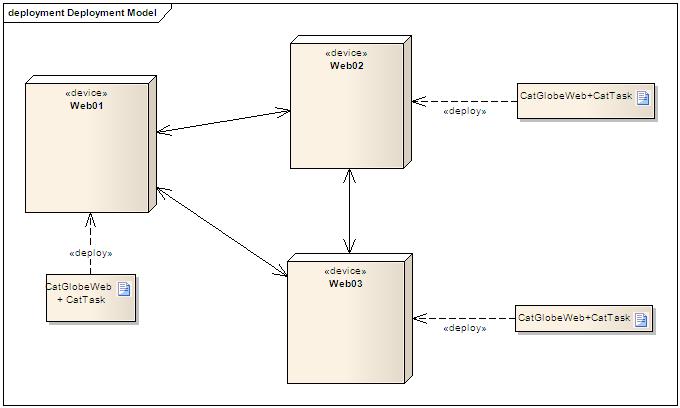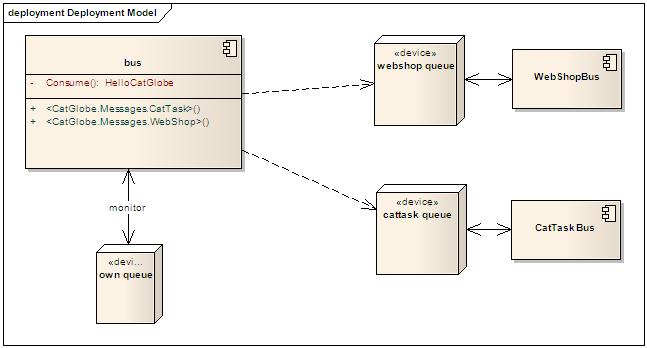More actions
No edit summary |
No edit summary |
||
| Line 21: | Line 21: | ||
[[Image:CatTask A simple bus.JPG]] | [[Image:CatTask A simple bus.JPG]] | ||
- Has a queue which it monitors for incoming messages. It is the "own queue" in the image below. When messages come, the bus will receive the messages from the queue and invoke the appropriate consumers to process the them. | - Has a queue which it monitors for incoming messages. It is the "own queue" in the image below. When messages come, the bus will receive the messages from the queue and invoke the appropriate consumers to process the them. | ||
[[Image: | [[Image:CatTask A Simple Consumer.JPG]] | ||
- | - | ||
== Buses design for CatTask == | == Buses design for CatTask == | ||
Revision as of 02:35, 20 March 2009
Communication in Cattask v2009
What kind of communication do we need?
In the real production environment, because of the use of network balancing, one CatGlobe site is deployed in three separate servers. Besides, we decided that there will be one "Cattask" for one deployed instance of a site. The running production environment should look like:
The problem is that the three cattasks won't run independently. Instead, they must contact with each others to share information about scheduled tasks, tasks execution...
So what communication technology should we use?
We have investigated 3 communication techniques so far: remoting, WCF and MSMQ. You can find the whole story here Remoting,WCF and MSMQ for CatTask . At the moment, we are designing the module using MSMQ with the help of Rhino Service Bus.
Rhino Service Bus
Rhino Service Bus (RSB) is an ESB which is built on the top of MSMQ. In short, a Rhino service bus:
- Has a queue which it monitors for incoming messages. It is the "own queue" in the image below. When messages come, the bus will receive the messages from the queue and invoke the appropriate consumers to process the them.
File:CatTask A Simple Consumer.JPG
-


